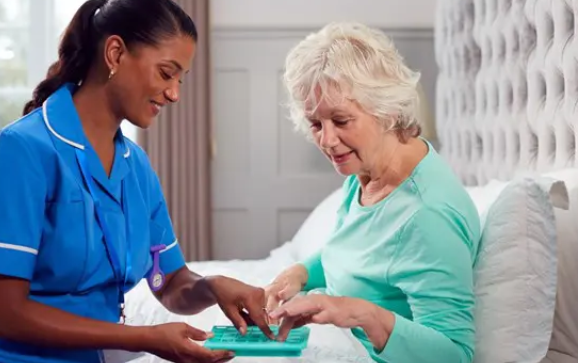Anyone who is engaged in the handling of medication needs to not only consider how this can be done on a practical level but also the legal and ethical requirements. Many people handle medicines on a daily basis for themselves or family members; however, within the social care setting in particular, there are additional knowledge and training needs.

Safe handling of medication training
Those involved in the handling and administering of medication in a professional setting are required to undertake training, such as the safe handling of medication level 2 or above. Other options are available for those who simply want to upskill themselves to be more aware of the issues they or their colleagues may face.
Depending on the nature of the role, there will be different requirements. Guidance provided by the Royal Pharmaceutical Society applies across a range of settings and is an excellent starting point for those who are planning the training needs of an organisation.
Safe handling of medication tips
Aside from training, there are some key tips that can be followed for the safe handling of medication. The five ‘rights’ of medication use provide a good framework to work within: the right patient, the right drug at the right time, and the right dose through the right route. It is helpful to produce a checklist to ensure all five of these are maintained at all times. By running through the five rights whenever dispensing medication, it is likely that any issues or problems will be identified promptly.

It is also important to ensure the overall storage and processes are regularly monitored and reviewed by a more experienced practitioner. Commonly, those receiving medication in this way are likely to be particularly vulnerable and have multiple needs; therefore, viewing the safe handling of medication as part of the wider treatment and care plan is essential, as is regular communication between the professionals involved in a patient’s care.
Anyone who is involved in handling and administering medication should keep full records and inform others as soon as any concerns arise.



